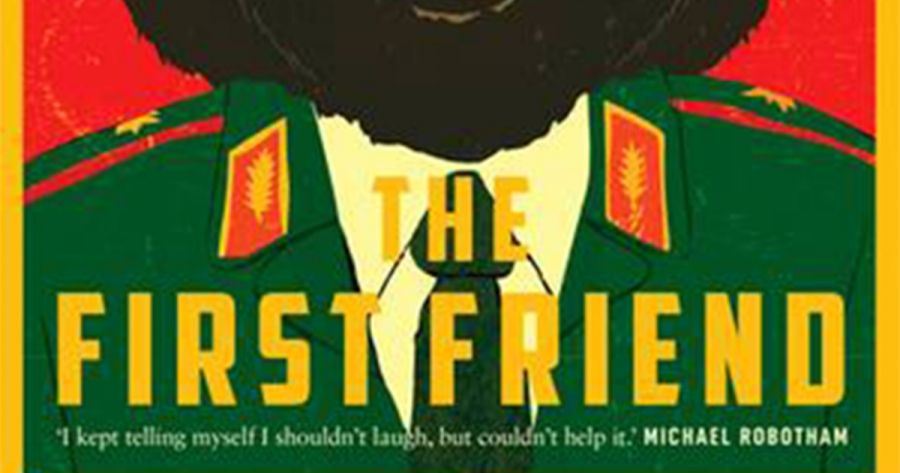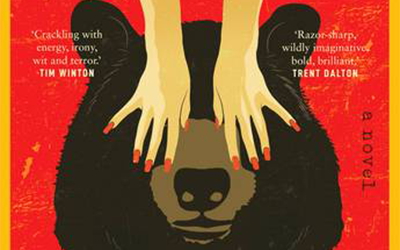
- Free Article: No
- Contents Category: Fiction
- Review Article: Yes
- Article Title: Creepy dudes
- Article Subtitle: Capturing a maniac’s fantasy
- Online Only: No
- Custom Highlight Text:
Whenever I spot the new flyers of our university’s student communist club, all I can do is admire the gumption. Talk about seriously swimming against the tide, the political equivalent of hawking CDs in a Spotify world. When just broaching the topic of negative gearing can torpedo a major political party in this country, what chance is there that the kids are going to abolish private property altogether? The truth is that communism’s only active role in the West today is playing the bogeyman, a danger label to be slapped on anything conservatives find insufficiently conservative. See, for example, the current US vice-president, who had only to politely request a little more corporate tax, please, sir, and voila, she’s Comrade Kamala, cackling her way to the gulag.
- Featured Image (400px * 250px):

- Alt Tag (Featured Image): Alex Cothren reviews ‘The First Friend’ by Malcolm Knox
- Book 1 Title: The First Friend
- Book 1 Biblio: Allen & Unwin $34.99 pb, 391 pp
- Book 1 Cover Small (400 x 600):

- Book 1 Cover (800 x 1200):

- Book 1 Readings Link: https://www.readings.com.au/product/9781761470431/the-first-friend--malcolm-knox--2024--9781761470431#rac:jokjjzr6ly9m
So, you’ll have to forgive my eyeroll when I saw that Malcolm Knox’s sixth novel, The First Friend, was set in Stalin’s USSR yet marketed as an analogy for our current political climate. But Knox does indeed connect the dots, cutting away all the Marxist trimmings of his chosen period and focusing instead on what unites political disasters across the ages: creepy dudes. You know the type. Oily, intellectually vacuous grifters who somehow snuffle their way into positions of supreme influence through their one and only superpower: the ability to reject reality so determinedly that it warps around them.
Yeah, there’s still plenty of those guys around. The one at the centre of Knox’s novel is Lavrentiy Pavlovich Beria, who served as Stalin’s chief of secret police during World War II and was responsible for countless deaths, most notably the brutal Katyn massacre of Polish military and police in 1940. When we meet him here, it’s 1938, and Beria is still sidelined as the governor of the republic of Georgia, a vain toad whose hair loss means ‘he tolerated only baldness in his inner circle’. He’s happy enough with this safe remove from Moscow, free to terrorise the local populace as it suits him, a ‘hyena in syrup’ with a predilection for imported chillis and prepubescent girls. Beria has mastered the very Soviet art of reflecting back whatever those higher up wish to see; he is a man capable of wearing ‘as many faces as there were minutes in the day’. But when Stalin announces a surprise visit to his Georgian homeland, Beria is suddenly in danger of being pinned down. If he fails to scrabble together a welcome worthy of the man they call The Shining Sun of The Soviet Country, And More Than The Sun, For The Sun Lacks Wisdom, he’s doomed. But throw too spectacular a party and suddenly he has a target on his back as a potential challenger for the throne.
What follows is a twisted comedy to the soundtrack of ‘forced laughter, one of the more painful Soviet sounds’, as Beria tries to build a presidential palace in forty days while fending off a hungry new wave of hardcore Bolsheviks eager to see him ‘eaten by the machine’. The mix of romp and terror will be instantly familiar to anyone who has seen Armando Iannucci’s black comedy The Death of Stalin (2017), which featured a bundle of Stalin’s would-be successors, Beria included, engaged in a grim Monty Python-like sketch of bumbling backstabbing. In his Acknowledgments, Knox’s refers to the film’s ‘liberating effect’, and he too plays with both facts and accents. It never stopped tickling me how everyone here talks like Bob Katter on his fifth vodka and Coke: ‘Where’s our precious larrikin spirit?’; ‘poor bugger got cancelled’.
A criticism of Iannucci’s oeuvre is that there is never a moral centre, only a drain for the political schemers to circle. Knox branches out by giving us someone to care about. Vasilia Murtov is Beria’s chauffeur, confidant, and the titular first friend. When they were both children, Murtov’s bourgeois family adopted Beria, and it was this connection that later kept Murtov alive during the Revolution that devoured many a ‘son of non-toilers’. Now, Murtov and his wife, Babilina, represent a tragic generation that has surrendered its ideals and ‘embarked on their internal migration, only desiring to keep their families together and snatch some happiness from today’. Murtov will do anything to keep his young daughters safe; as Beria’s situation deteriorates, he must decide if it’s time to break from his protector’s shadow, his ‘every decision a passage through a gate that locked behind you’.
Murtov gives the story real stakes, while also allowing Knox’s research to shine. Winner of three Walkley awards and author of sixteen books of non-fiction, Knox fills the pages with details of day-to-day life for these second-tier apparatchiks, from the Georgian sausage and kidney bean salad on their tables, to the pillows placed judiciously upon their telephones. In particular, he captures the daily psychological burden of upholding a maniac’s fantasy.
In a telling moment, Murtov passes by the Palace of the Soviets, which exists in the believers’ collective imagination as ‘a structure higher than the Empire State Building … a final proof of Soviet enormity’. And yet for a moment, Murtov traitorously allows reality to sneak in, witnessing what is in truth a pile of rubble within which ‘urchin children were fishing in the flooded foundations’.
Is it possible for someone as imperfectly indoctrinated as Murtov to survive? Given how the book’s chapter headings count down to his death, the odds seem bleak, but the coldest truth is that Beria did survive to do much worse. Closing The First Friend with that knowledge left me feeling hollow, ready to try anything that could reset a world in which all our various Berias keep winning.
Honestly? I might just pick up one of those flyers tomorrow.


Comments powered by CComment